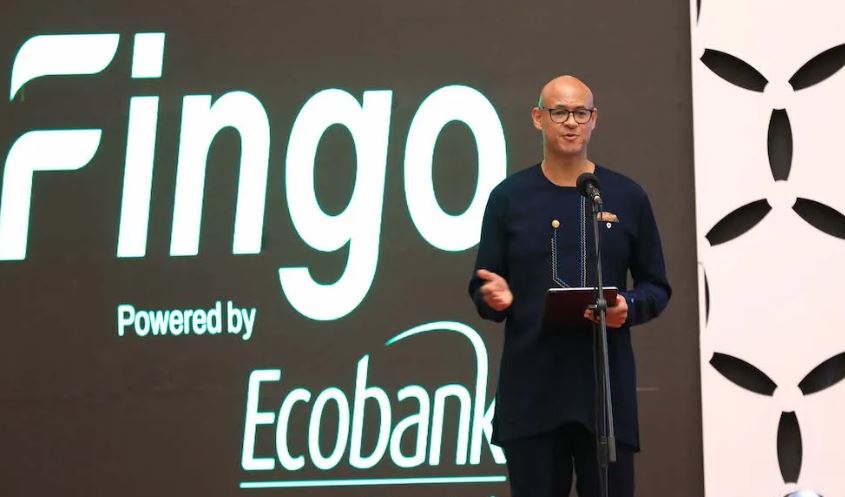
How has your journey been so far as Ecobank Group chief executive?
It has been very exciting. I have enjoyed meeting colleagues and customers across the continent. As you know we are in 35 markets, and they are varied from big markets like Nigeria to small (markets) like Sao Tome and Cape Verde; so it is a very big breadth of business.
It is interesting to see how the different banking markets are evolving and each of them have their own unique strength that they bring. One of the exciting things for me is to see how can we bring strength from one country and one financial system to the other.
A lot of banks are expanding their businesses across borders, like we see with some Kenyan institutions, to increase their footprints across the continent. As Ecobank Group, do you have a similar expansion strategy?
Right now there is no bank that has the geographical footprint that we do. I think the next one is probably at 17 or 18 countries. Right now we have solid footprint in which to work. We believe there are lots of opportunities in these markets. There are markets that we would still like to explore, if they are available, like Ethiopia.
We are not close-minded to go into new markets depending on the opportunity. Our purpose is to bring world-class banking to the African continent and uplift the economies. We have a great number of countries, I think when you compare to let’s say the East African banks, they are expanding their footprints moving into markets we are present. For us is how we grow in the markets we are already in.
There is a current push among financial institutions to target the lower income group such as ‘mama mboga’. Why has this become important and what is Ecobank doing to this end?
Financial inclusion is core, I mean, we have got a young population. When you think you have 42 percent of the population under 14 just imagine in the next four years they will be adults and they will need financial services. We work on financial literacy, educating young people about the different financial products that are available. We have already educated almost 700,000 young people on banking services and products.
Now are bringing in digital banking solutions which we know people want. They want convenience, relevance, and banking on the go. We have built a large network of partnerships across the continent for people: if they need cash we have thousands of ATMs, if they want to do transactions we have a large agency banking network, we are building our remittance business to bring funds from the diaspora into the continent.
For us, there are significant opportunities to build on this and I think for a lot of people, the payment friction and costs are still way too high and that is why we are excited that if you move money from an Ecobank Fingo account to another you do not pay any money.
That gives you more money for your livelihood or for running your business and can reduce your costs going forward.
As a regional bank operating in 35 markets, how do you cope with global volatility in the financial market which have led to the current high-interest rates?
It has had a severe impact. The Ukraine-Russia war obviously influenced trade between countries with sanctions. We are also coming out of Covid where the literal physical movement of goods was affected, and then now we are seeing inflation picking up in the West which has led to increased interest rates in those countries.
So foreign investors who are investing in Africa have said ‘I could get a good risk-adjusted return if I keep my money in the US or Europe’. We have actually seen an outflow of funds from Africa. That has put pressure on the currencies as we have seen them depreciating against the US dollar, the Euro and other. That has actually meant liquidity has tightened in a number of markets especially foreign currency liquidity.
At the same time, our local currency liquidity is still holding up. The economies are still growing. Over time I think what will happen is we will see inflation coming down, interest rates following and we will see the interest back in investing in Africa.
What does the future of banking look like amid the digital disruption?
Banks have a role; I know people say banks are not going to exist. I don’t necessarily ascribe to that. I think the way banking is going to be done will change over time. Before you would walk into a branch, you would have to talk to a manager, and formally apply in writing for a credit facility.
Now you can apply for a credit facility on your phone and get it within minutes. Turnaround times are improving.
I think where we expect to see a lot of changes is the use of data to run banking more efficiently. I think we are seeing a lot of digital technology to bring down the cost of banking services and we have a lot of fintechs.
I see a situation where fintechs will work with banks because we have to remember banks are regulated by their respective central banks in their countries; and their role is to receive deposits and then put them in good use through lending.
Banks have to inject a lot of capital to protect depositors’ money. I think banks will evolve their banking services to remain relevant but we have to be nimbler and work with partners and that is what we are doing as we launched Fingo.








